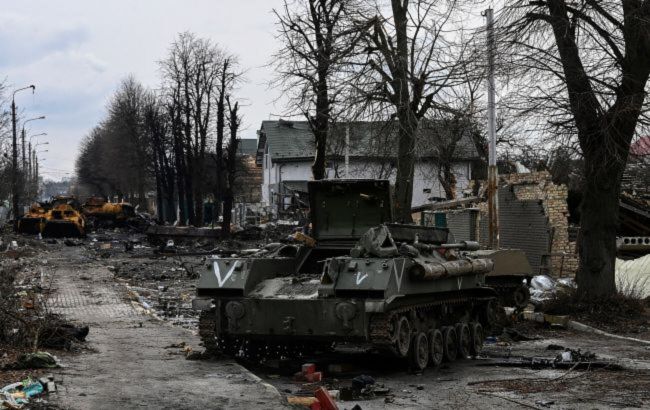Kremlin renews rhetoric on Bucha war crimes
 Illustrative photo: Kremlin renews rhetoric on Bucha war crimes (Getty Images)
Illustrative photo: Kremlin renews rhetoric on Bucha war crimes (Getty Images)
Russian authorities are once again spreading false claims about the events in Bucha, dismissing documented evidence of mass killings and torture as a so-called "staged provocation," according to the Center for Countering Disinformation.
The Russian leadership has once again denied the mass atrocities committed in Bucha during the occupation. Russian Foreign Ministry spokeswoman Maria Zakharova claimed the tragedy was a "staged provocation," citing the alleged absence of "lists of victims" that Moscow continues to demand from Ukraine.
According to Ukraine’s Center for Countering Disinformation, such statements are manipulative attempts to shift focus and undermine trust in verified evidence.
Documented war crimes in Bucha and other liberated cities
After the liberation of Bucha, Irpin, Hostomel, Izyum, and parts of the Kherson region, Ukrainian and international investigators documented numerous Russian war crimes, including mass graves, executions of civilians, torture, and the striking of residential areas.
These findings are confirmed by forensic examinations, eyewitness testimonies, and international investigations.
Kremlin's disinformation strategy
Denying evidence of genocide and violence is part of the Kremlin’s broader information warfare strategy aimed at evading accountability and pressuring witnesses.
Russia continues to spread such narratives across international media platforms, seeking to sow doubt and create an alternate version of events.
Claims about "fake news" in Bucha coincided with the UNESCO-sponsored Dialogues on Fakes 3.0 forum, attended by foreign journalists, an apparent attempt to influence perception and blur the evidence of Russian war crimes.
According to the Center, this disinformation campaign also serves as information cover for potential new acts of aggression against Ukraine.
Meanwhile, in the temporarily occupied areas of Donetsk and Luhansk regions, the employment situation remains critical, with unemployment levels reportedly three times higher than in 1992. Most residents lack a steady income, and some are forced to work in exchange for food rations.
Moscow has also announced a so-called "resettlement program" for the occupied territories, describing it as the "return of residents." In reality, officials note, it represents a controlled population transfer intended to consolidate Russian control over Ukrainian lands.

